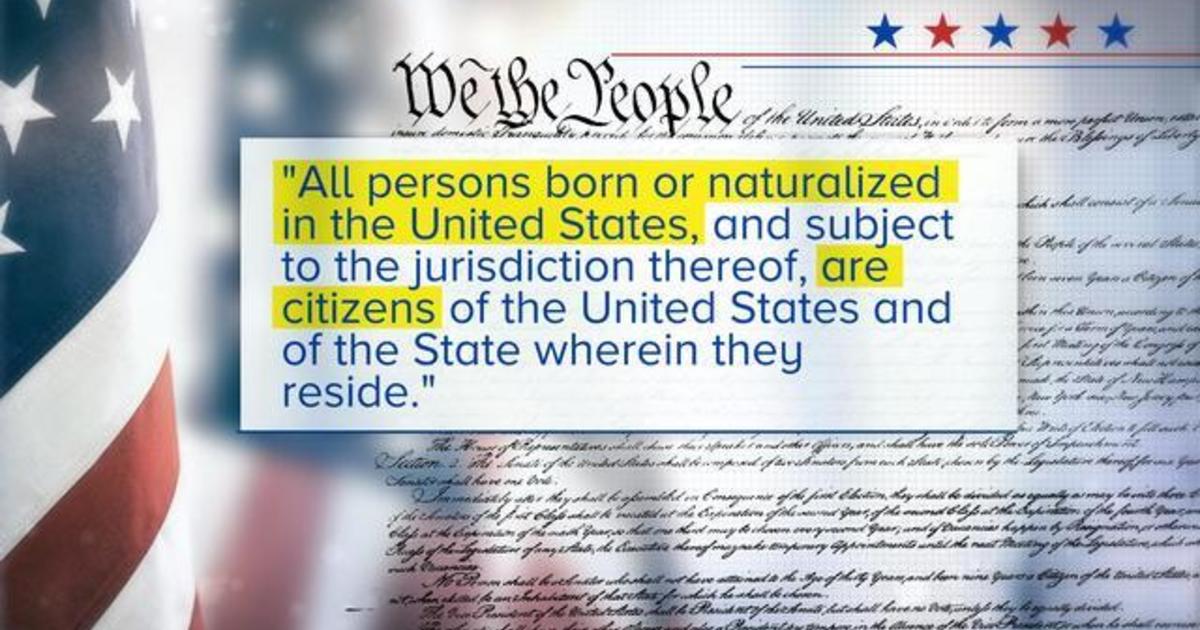Judge Blocks Trump's Birthright Citizenship Order: A Legal Setback
In a significant legal development, a federal judge has temporarily blocked President Donald Trump’s executive order aimed at redefining birthright citizenship in the United States. This ruling comes amidst a broader legal challenge from multiple states against the executive order, which sought to deny U.S. citizenship to children born in the country to parents who are in the country illegally.
Background of the Case
The executive order, issued by Trump, was intended to alter a long-standing interpretation of the 14th Amendment of the U.S. Constitution, which guarantees citizenship to anyone born on U.S. soil. The order was part of Trump's broader immigration policy agenda, which has been a focal point of his administration since its inception.
On January 23, 2025, during the first hearing of a multi-state lawsuit challenging the order, Judge John Coughenour of the U.S. District Court for the Western District of Washington described the executive order as “blatantly unconstitutional.” The judge's ruling issued a temporary restraining order, effectively halting the implementation of the order while the legal challenges proceed.
The Legal Challenge
The lawsuit against Trump’s order was initiated by attorneys general from 22 states, who argued that the executive order undermines the constitutional rights of children born in the U.S. regardless of their parents' immigration status. The states contend that the order violates the 14th Amendment, which has historically been interpreted to guarantee citizenship to all individuals born on U.S. soil.
The judge's decision marks a significant legal setback for the Trump administration, which has faced numerous challenges to its immigration policies. The ruling is expected to lead to a protracted legal battle as the Department of Justice has vowed to "vigorously defend" the executive order.

Implications of the Ruling
The implications of this ruling are profound. If upheld, it would maintain the status quo regarding birthright citizenship, ensuring that children born in the U.S. continue to receive citizenship regardless of their parents' immigration status. This ruling also reinforces the judicial system's role in checking executive power, particularly in matters of immigration and citizenship.
The decision has sparked a wave of reactions from various stakeholders. Advocates for immigrant rights have hailed the ruling as a victory for civil rights, while opponents of birthright citizenship have expressed disappointment, arguing that the ruling undermines the integrity of U.S. immigration laws.
Public and Political Reactions
The ruling has garnered significant media attention, with various news outlets covering the implications of the judge's decision. AP News, CNN, NBC News, and The New York Times have all reported on the case, highlighting the judge's strong language and the potential for further legal battles.
On Capitol Hill, the ruling has reignited debates over immigration policy and the future of birthright citizenship in the U.S. Some lawmakers have called for legislative action to clarify the status of birthright citizenship, while others have expressed support for the judge's decision as a necessary check on executive overreach.
Next Steps
As the legal proceedings continue, the Justice Department is expected to file an appeal against the ruling. The case will likely move through the courts, potentially reaching the Supreme Court if the lower courts uphold the judge's decision.
In the meantime, the temporary restraining order remains in effect, ensuring that the current interpretation of birthright citizenship remains unchanged for the time being. The outcome of this case could have lasting implications for immigration policy and the rights of individuals born in the U.S.

The temporary block on Trump's executive order to redefine birthright citizenship represents a critical moment in the ongoing debate over immigration policy in the United States. As the legal battle unfolds, the implications of this ruling will be closely watched by advocates, lawmakers, and citizens alike. The case underscores the importance of the judiciary in safeguarding constitutional rights and the ongoing tensions surrounding immigration in America.
For more detailed coverage, you can follow the links to the articles from AP News, CNN, and NBC News.





